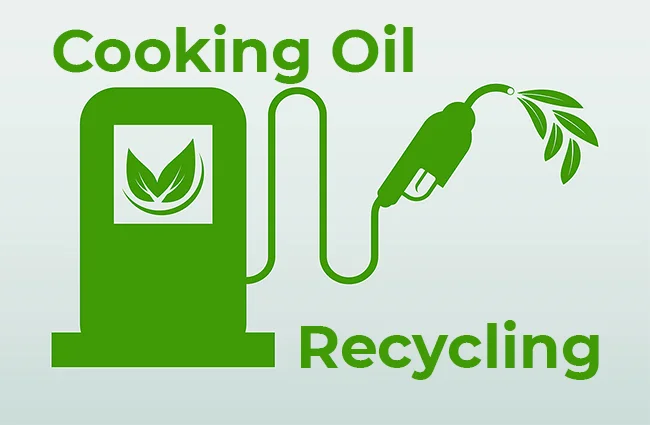Oil is toxic waste. Its recycling must be done with care, just like car recycling.
Oil recycling: for the protection of the environment
Waste oil (motor oil and cooking oil) is the main cause of water pollution in the city of Fresno and other cities in California. Its recycling is important to preserve the environment and represents a public health issue. One liter of (waste) oil covers an area of 1000 m² of water, thus limiting the oxygenation of fauna and flora.
Once the edible oil is thrown into the sink, it joins the sewer and causes:
- clogging, bad odors in the pipes,
- asphyxiation of the bacteria responsible for purifying the water (which prevents its oxygenation),
- the increase in the (significant) maintenance cost of sanitation systems and treatment plants,
- proliferation of microorganisms harmful to health.
Properly recycle your oil: container, household waste
Used oil in small quantities, such as the bottom of a can of tuna, for example, can join the general bin intended for household waste.
On the other hand, for a large quantity, such as oil from a fryer, it must be transferred to an empty bottle:
- to be dropped off at the landfill,
- or to be deposited at a specific collection point organized by local authorities.
Attention ! Do not dispose of your cooking oil in a sink, a toilet seat or in a gutter, because in contact with water, the oil clogs the pipes.
Note: since 1992, restaurants no longer have the right to dispose of their used oil in nature.
Oil recycling: biofuel, regeneration, combustion
Recycling used oil makes it possible to create fuel, new oil or even energy. Recycling of oil into biofuel is only done for agricultural vehicles. Diesel engines can run on oils of vegetable origin. These renewable energies have a low impact on the greenhouse effect. For now, only agricultural vehicles can use it in Califonia.
To recover edible oil to operate a vehicle, you must:
- store it,
- collect it,
- clean it,
- undergo a chemical transformation.
New oil: 45% of motor oil is regenerated
Used oil can be used again perfectly. Once treated and purified, it becomes a new oil. 45% of the oils collected have a normal appearance. Non-recyclable oils are burned to produce energy. They go to approved waste incineration centres. The ultimate waste resulting from this combustion is buried.
If you are renting a dumpster to remove all sort of waste and junk, you should not put used oil in it (click here for more information), as this can be conisered as hazardous materials. Such hazardous materials must be treated separately, and require specialized waste management services. This type of waste is highly toxic for the environment and can only be processed in a specialized facility designed to that effect.
Residents of California must become more aware about recycling sustainability, pollution and waste management best practices if we want to provide a bright future to the next generations and to ourself. The glocal climate crisis is looming, so it is better to improve the way we handle waste.

